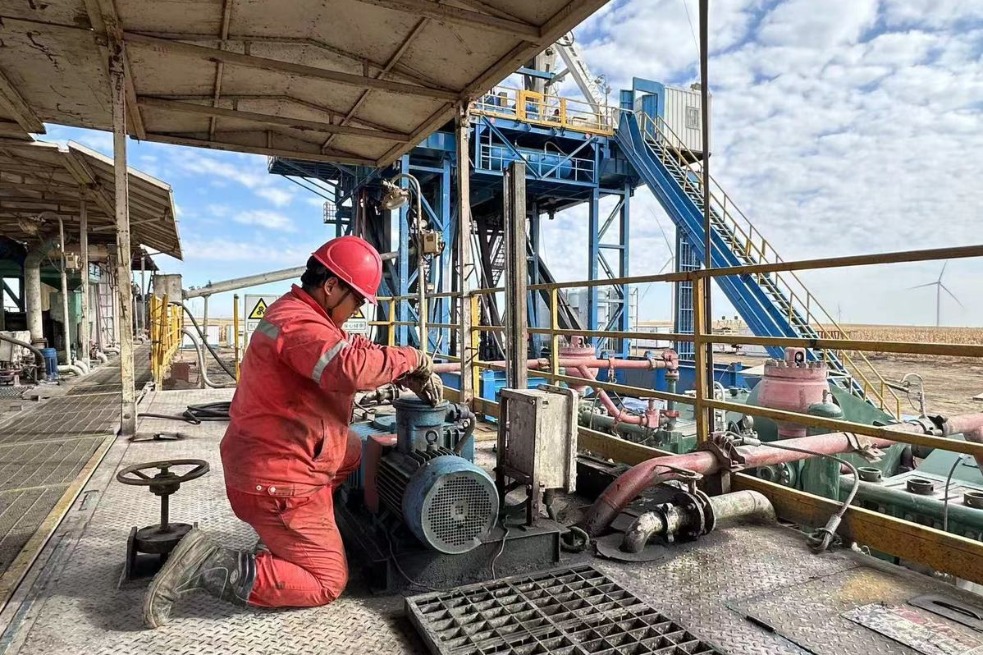Yuan-based assets seen more alluring
Official: 'Cross-border capital flows will maintain ... positive trajectory'

Renminbi financial assets are set to attract more foreign investment in the months ahead after foreign holdings of onshore bonds and equities rose amid the country's sharpening policy focus on shoring up asset prices, according to officials and analysts.
"We have the conditions and confidence that China's cross-border capital flows will maintain a stable and positive trajectory in the coming months of the year and beyond," said Jia Ning, head of the Balance of Payments Department of the State Administration of Foreign Exchange.
SAFE data showed on Tuesday that foreign investment in Chinese bonds saw a continuous and stable influx, amassing over $80 billion in net increases in the first three quarters.
A "noticeable improvement" in foreign investment in onshore stocks has emerged recently, according to SAFE, without disclosing specific figures.
James Wang, head of China strategy at UBS Investment Bank Research, said that focus from foreign investors on the country has picked up as the latest policy moves appeared to be aimed at lifting asset prices, which would support expectations and consumption via the wealth effect.
"We believe a stabilization in some key economic indicators, particularly nominal retail sales, could see some long-only investors come back to the China (stock) market," Wang said, though a greater level of volatility in the equity market is likely, given the short-term nature of capital inflows so far.
Since late September, Chinese policymakers have launched a series of stimulus measures with a particular emphasis on stabilizing the property market and bolstering the stock market. The People's Bank of China, the country's central bank, launched its first policy tools specially aimed at boosting stock market liquidity.
On Monday, the PBOC conducted the first operation of a new swap facility — which enables financial institutions to swap less liquid securities for more liquid ones and pledge them for lending to invest in the capital market — at a size of 50 billion yuan ($7.02 billion).
Share-buying transactions financed through the facility were made by China International Capital Corp Ltd on Tuesday.
Informed sources said the central bank will continue to conduct the facility operation in batches as necessary and will expand the size of the facility based on the actual situation after the initial 500 billion yuan in quota is used up.
The implementation of a special central bank lending program to buy back shares and boost share holdings with an initial quota of 300 billion yuan also got underway. As of Sunday, 23 listed companies said they had applied for over 10 billion yuan of the loans in total, and more are expected to follow suit.
China's benchmark Shanghai Composite Index closed up 0.54 percent at 3285.87 points on Tuesday, while the onshore renminbi came in at around 7.12 against the greenback as of Tuesday afternoon, weakening by 82 basis points from the previous session.
"Foreign investment in China's capital markets is still in a nascent stage, with holdings of renminbi-denominated assets accounting for 3 percent to 4 percent of the domestic bond and stock markets," said Li Hongyan, deputy head of SAFE.
"There is room for further growth given a multitude of favorable factors," Li said, adding that a package of incremental policies has consolidated China's long-term positive economic momentum.
Total holdings of onshore renminbi bonds by foreign investors have surpassed $640 billion so far, marking a historic high, with treasury bonds and bonds issued by policy-oriented banks the preferred investment targets, she said.
According to SAFE, the accumulative amount of cross-border receipts and payments by non-banking sectors was $5.2594 trillion and $5.2566 trillion during the January-September period, respectively, representing a surplus of $2.8 billion.
In September, the surplus surged to $60.2 billion amid improved foreign investment and continued inflows from trade, SAFE data showed.
Guan Tao, global chief economist at BOCI China, said that in the base case scenario that the United States achieves a soft landing and continues interest rate cuts, foreign institutions may continue to boost holdings in renminbi bonds, especially treasury bonds, as yield spreads further narrow.




































